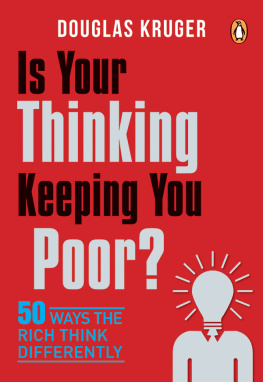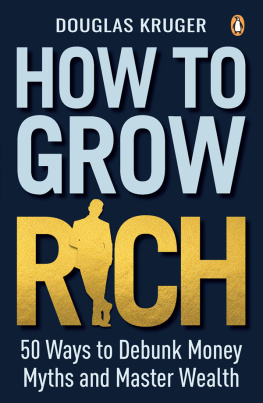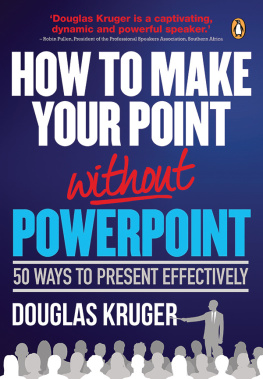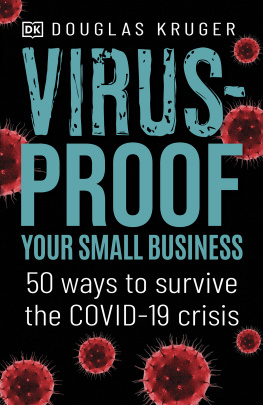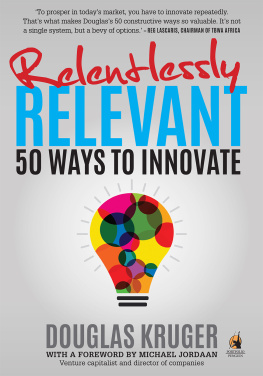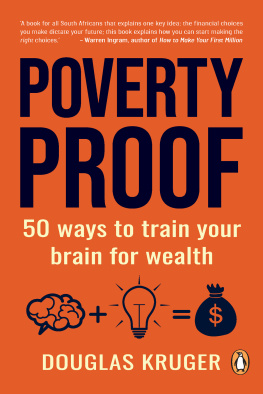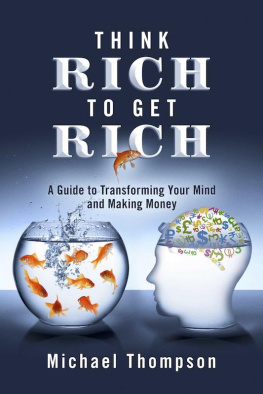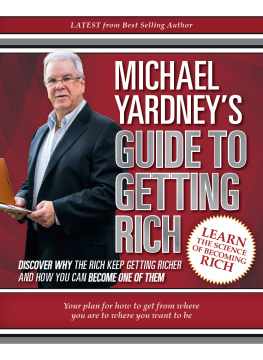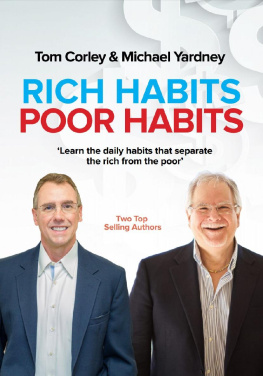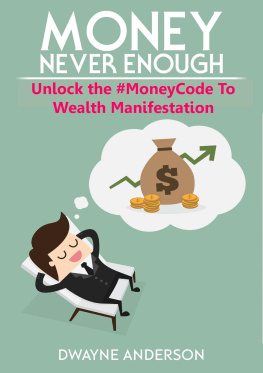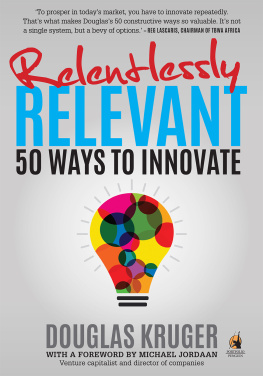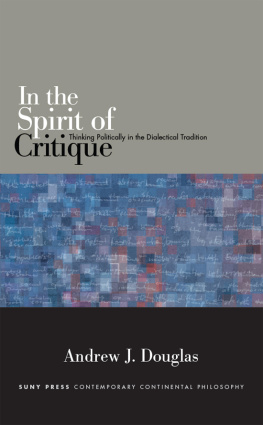
Published by Penguin Books
an imprint of Penguin Random House (Pty) Ltd
Company Reg. No. 1953/000441/07
The Estuaries No. 4, Oxbow Crescent, Century Avenue,
Century City, Cape Town, 7441
www.penguinbooks.co.za
First published 2016
Publication Penguin Random House 2016
Text Douglas Kruger
Cover illustration: Selman Amer 123RF.COM
All rights reserved. No part of this publication may be reproduced, stored in a retrieval system or transmitted, in any form or by any means, electronic, mechanical, photocopying, recording or otherwise, without the prior written permission of the copyright owners.
PUBLISHER : Marlene Fryer
MANAGING EDITOR : Ronel Richter-Herbert
EDITOR : Angela Voges
PROOFREADER: Ronel Richter-Herbert
COVER AND TEXT DESIGN : Ryan Africa
TYPESETTER : Monique van den Berg
Set in 11.5 pt on 15 pt Adobe Caslon
ISBN: 978 1 77609 113 3 (print)
ISBN: 978 1 77609 114 0 (ePub)
CONTENTS
To my sister Lauren, the best living example I know of excellence over victimhood. Lol, there are few who shine as brightly as you do. You make me proud every day.
There is only one class in the community that
thinks more about money than the rich, and that
is the poor. The poor can think of nothing else.
Oscar Wilde
One way to help the poor is not to be poor.
Help yourself so that you will be in a position to help others.
Bishop Noel Jones
For as a man thinketh in his heart, so is he.
Proverbs 23:7
Dont think poor
I do not choose to be a common man,
It is my right to be uncommon if I can,
I seek opportunity not security.
I do not wish to be a kept citizen.
Humbled and dulled by having the
State look after me.
I want to take the calculated risk;
To dream and to build.
To fail and to succeed.
I refuse to barter incentive for a dole;
I prefer the challenges of life
To the guaranteed existence;
The thrill of fulfilment
To the stale calm of Utopia.
I will not trade freedom for beneficence
Nor my dignity for a handout
I will never cower before any master
Nor bend to any threat.
It is my heritage to stand erect.
Proud and unafraid;
To think and act for myself,
To enjoy the benefit of my creations
And to face the world boldly and say:
This, with Gods help, I have done
All this is what it means
To be an Entrepreneur.
Dean Alfange, US politician and economic commentator, 1950
INTRODUCTION
Poverty is so Dark Ages!
In his book Why Africa Is Poor: And What Africans Can Do about It , Greg Mills declares that [p]overty is now optional.
What a staggering idea: there is no reason for Africa, or Africans, to be poor.
Mills argues that our continent is richly blessed with resources and the hard-working labour forces to exploit them. It is no longer prevented from self-governance by colonialism, nor has it been for some time. In fact, it receives aid and trade assistance from the rest of the world. For business owners and entrepreneurs, Africa is, in some ways, an almost ideal market. There is great need and desire for growth, coupled with relatively low levels of regulation an entrepreneurs paradise. A great many people have realised this, acted differently from the norm, and become fabulously wealthy as a result.
Most importantly, there is no end to the economic models that have worked dazzlingly across regions like Asia, from which to pick and to emulate. African governments could simply copy them. Their nations would prosper. We know the systems work.
So, why the poverty? Why the continued, clichd news footage of children with ribs showing and flies on their faces?
Sad to say, Millss research shows that the answer comes down to one thing: African leaders.
Mills asserts that they are the sole reason for the continued poverty of their nations. Every African nation is different in a myriad of tiny ways, but the overarching themes are remarkably similar: leaders hoarding wealth from state coffers, pouring money into guns, focusing on crushing undesirable minority tribes rather than on building nations, investing little to nothing in infrastructure, borrowing money from the International Monetary Fund and then stealing it, thus ensuring that an already impoverished nation only gets further into debt. Repeat.
Perhaps most important, observes Robert Calderisi in his book The Trouble with Africa: Why Foreign Aid Isnt Working , is one interesting element: how Africans are taught to view themselves. In every other post-colonial country in the world, citizens are taught to believe that they have overcome colonialism, and that they are glorious victors. In Africa, uniquely, post-colonial citizens are raised to believe that they are victims of colonialism, and that they are still suffering.
Thats a big difference in thinking. It contains within it the seeds of greater poverty.
In Asia, the belief is: we have risen above!
In Africa, the belief is: we are victims of
Both views are technically correct. They are only a choice of mindset. But one choice of mindset leads to prosperity, while the other leads to poverty. As a man thinks in his heart, so is he.
In the interests of our own financial futures, we should choose our mindsets very, very carefully.
CHANGING YOUR MINDSET
My goal is to alter your mindset regarding work and wealth radically. Why do mindset choices matter? Because being rich is not normal. The very word rich describes someone who has greater resources than the median someone whose life is abnormal, even extraordinary.
In South Africa, some 12 million people live in extreme poverty, according to Statistics South Africas 2015 report. Thats about 20 per cent of the population. Over 53 per cent are living under the broadest definition of poverty (which means not extreme poverty, but, in simple terms, poor). More than half of the people in our country qualify as poor.
No, rich certainly isnt normal and, to become rich, you will have to think and behave in ways that are not normal to those around you. You will have to become a philosophical rebel.
In How to Be a Billionaire: Proven Strategies from the Titans of Wealth , author Martin Fridson writes:
Most of the self-made billionaires are mavericks [] Group thinkers have not cracked the Forbes 400 in significant numbers for one simple reason: Doing the same thing in the same way as everyone else is decidedly not the way to overcome the leveling effects of competition.
To become wealthy, you will have to be a dissenter, a risk-taker, an outsider, with all the initial difficulties that a life lived against the grain entails, but also all the rewards that normal thinking will never generate.
Given that its scary to depart from the norm to think differently from your tribe of people you may already be experiencing some anxiety about what is in store for you.
Allow me to alleviate some of your fears. This is not an economics textbook. It will not delve into the terrifying waters of hedge funds, portfolios, investments and equities and the sort of financial tools that cause most people to feel insecure ( Why dont I know about those things? ).
It will not be especially political, although I will spend some time showing why socialist and collectivist systems tend to make nations poorer, not wealthier.
Instead, its simply about the differences in thinking between rich and poor. Its about discovering the different ways of behaving that will lead to either wealth or poverty, and its about attempting to drop the bad behaviours and start using the good ones.
Next page
